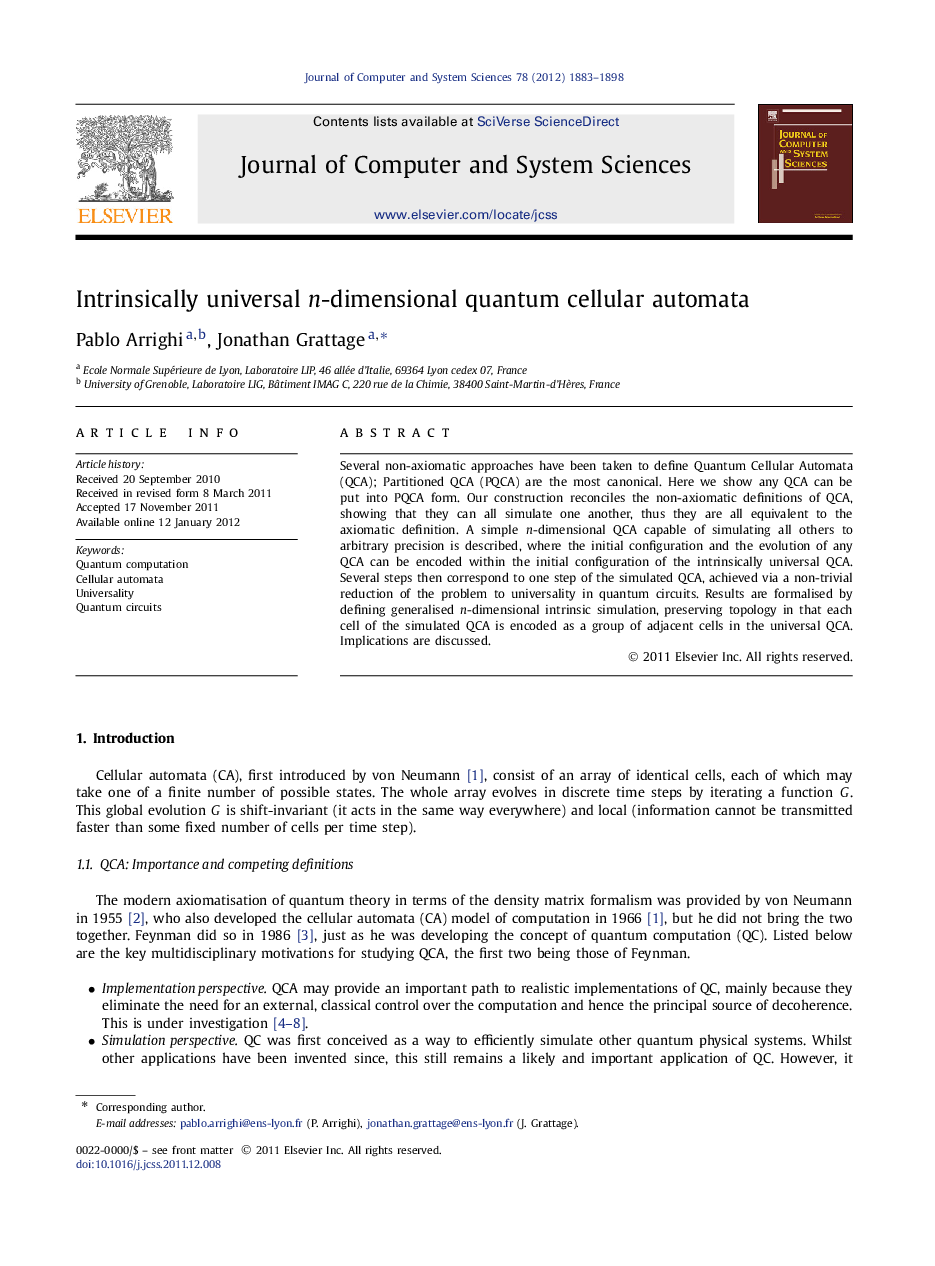| Article ID | Journal | Published Year | Pages | File Type |
|---|---|---|---|---|
| 429605 | Journal of Computer and System Sciences | 2012 | 16 Pages |
Several non-axiomatic approaches have been taken to define Quantum Cellular Automata (QCA); Partitioned QCA (PQCA) are the most canonical. Here we show any QCA can be put into PQCA form. Our construction reconciles the non-axiomatic definitions of QCA, showing that they can all simulate one another, thus they are all equivalent to the axiomatic definition. A simple n-dimensional QCA capable of simulating all others to arbitrary precision is described, where the initial configuration and the evolution of any QCA can be encoded within the initial configuration of the intrinsically universal QCA. Several steps then correspond to one step of the simulated QCA, achieved via a non-trivial reduction of the problem to universality in quantum circuits. Results are formalised by defining generalised n-dimensional intrinsic simulation, preserving topology in that each cell of the simulated QCA is encoded as a group of adjacent cells in the universal QCA. Implications are discussed.
► Partitioned QCA (PQCA) are the most canonical definition of Quantum Cellular Automata (QCA). ► It is shown how any QCA can be put into the form of a Partitioned QCA. ► This construction reconciles all the non-axiomatic definitions of QCA. ► A simple n-dimensional, intrinsically universal, QCA is presented via intrinsic simulation. ► The computer science based concepts of simulation and universality are brought closer to theoretical physics.
